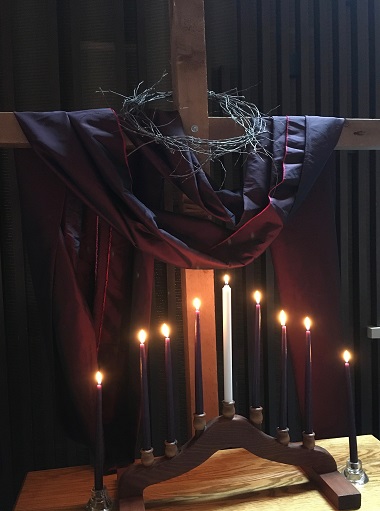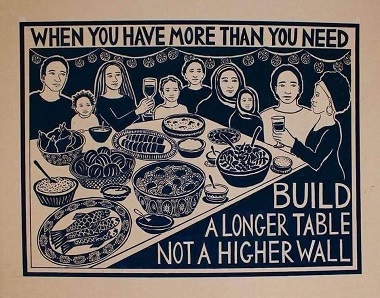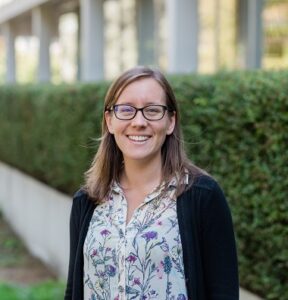 Creating Conversation is a weekly editorial, curated by the Centre for Missional Leadership, that gives opportunity for people to speak about issues they believe are vital for the church in Vancouver.
Creating Conversation is a weekly editorial, curated by the Centre for Missional Leadership, that gives opportunity for people to speak about issues they believe are vital for the church in Vancouver.
One of the goals of this weekly article is to spark dialogue – and action.
We invite you to join the dialogue here on the Church for Vancouver website. We also invite you to use the article as a discussion starter with your small group, church staff, friends and your neighbours. Thanks for participating in the conversation!
Today is Maundy Thursday, or Holy Thursday, which marks a significant point in the Lenten journey towards the cross.
The word ‘maundy’ is derived from the Latin ‘mandatum,‘ referring to the command that Jesus offers his disciples before he leaves them: “I give you a new commandment, that you love one another. Just as I have loved you, you also should love one another” (John 13:34, NRSV).
As we remember the Last Supper and the final fellowship of Jesus and his disciples, some will gather in a church or other sacred space to share a meal, pray together and perhaps wash each other’s feet.
The scriptures and church traditions have provided us with a rich variety of rituals and sacraments around this event, and observation of this sacred day varies from church to church. I grew up in a few different evangelical churches, and my experience of celebrations in the church calendar was limited and reserved for the holiest of holy days, like Easter and Christmas.
Banquet table
But since worshipping and studying alongside Mennonites and others, my own table has widened. At this table, I can enjoy the richness of various traditions and be shaped by them all. With this metaphor, the image I see is essentially a banquet table covered with dishes of all kinds, each adding one part that makes a whole, satisfying and enriching meal. But the table can symbolize many things.
 The table is a place of fellowship and food, where a commonplace (and essential) action becomes the place where relationships grow and thrive.
The table is a place of fellowship and food, where a commonplace (and essential) action becomes the place where relationships grow and thrive.
We’ve all felt the loss of such fellowship, especially now with our collective experience of the past two pandemic years. We can’t wait to get back to shared meals with friends, family gatherings, after-church coffee hour and potlucks. Food and fellowship are central to life together.
The table is also a place of confession and gratitude, where a ritual action draws our attention back to our Creator and all that we have received.
This is, of course, the event that we call the Lord’s Supper, or the Eucharist. This meal, grounded in the Jewish celebration of Passover, portrayed in the gospels and fleshed out by later apostles, is significant for us.
Therefore, my hope is that you would be drawn to reflect on your own traditions and allow the Spirit to shape your understanding, reimagining new possibilities for your worship and witness in the community around you.
Ritual
The word ‘ritual’ is a religious phenomenon that can be defined in many ways, depending on the context. For example, ritual can be a simple, repeated action; or it can be an action meant to invoke a divine being.
Churchgoers are likely more familiar with other words like ‘sacrament’ and ‘ordinances.’ These words have all influenced us in different ways, and perhaps they are new to you!
I need to clarify that in my tradition, faith is not necessarily dependent on these things. In other words, our ritual actions do not administer salvation; my relationship with God is not dependent on whether or not I carry out the ritual act to perfection. These actions are ways by which we connect with God and others. And there are two useful definitions of the word ‘ritual’ that I want to flesh out.
Liminal space
First, ritual can be defined as liminal space. This means that it is a place of transition or change, or a place on the threshold of something else.
When we come to the table of the Lord’s Supper, we are re-enacting the story of the gospel, particularly the convergence of heaven and earth in the person of Jesus. Taking the elements, the bread and wine, represents the materiality and movements that are part of our life in Jesus. We affirm the humanity of Jesus and his incarnate presence, and we affirm our commitment to walk with him as his disciples.
We’re also on the threshold of the kingdom of God, celebrating the places where God’s reign has broken into our world. We proclaim that God is changing or renewing all things and we proclaim our part in this work.
There’s a wholeness here in this proclamation that embraces the past, present and future. N.T. Wright puts it this way, when addressing the Eucharist: “Within the sacramental world, past and present are one. Together, they point forward to the still-future liberation,” (Surprised by Hope, p. 274). A term for this convergence is the ‘already / not yet,’ meaning that God has already established the kingdom, in part, and we are waiting for the fulfilment of all God’s promises of renewal.
I encourage you to see each experience of the Lord’s Supper, especially in this holy season, as a precious moment where we, together as the church, stand at the convergence of heaven and earth and celebrate the change that God is working in our world. This is the gospel; proclaim it and live it!
Equalizing experience
Second, ritual can be defined as an equalizing experience. By this, I mean that it’s an event where divisions and distinctions are set aside and all are welcome to partake.
Ideally, divisions along socioeconomic, racial, denominational lines are obsolete and all can receive freely. Historically, however, we’ve seen that this isn’t always true. In fact, many rituals across religious traditions have inherited narrower definitions and placed boundaries on who can administer and participate in ritual actions.
I recognize that there are theological implications about who is allowed to do what in the Lord’s Supper, especially when covenant and discipleship enter the conversation. My goal is not to focus on ‘fences’ or denominational differences. Rather, I want to focus on the concept that we, as followers of Jesus, can come together at the table and focus on that which is most important: God’s love that unites us.
Even if it’s just for a moment. This one moment should symbolize our commitment to each other and God’s world in all other moments. We are people defined by love, and we are called to welcome others. The barriers and fences have been broken by Jesus’ actions on the cross.
“In Christ all were one, whether Jew or Gentile, slave or free, male or female (Galatians 3.28). This was a theological truth, yet the social expression and confirmation of the opening of salvation to all regardless of such categories was eucharistic table-fellowship,” writes scholar Philip F. Esler, summarizing what the apostle Paul is telling the Galatian church (The First Christians in Their Social Worlds, p. 68). What a beautiful way to embody the love and welcome of our saviour Jesus.
I encourage you to extend this welcome not just to those within the walls (of the church), or those who are the same as you, but to those beyond the walls, and those who are not the same as you. God’s love knows no boundaries, and invites us all into God’s family. This is the gospel; proclaim it and live it!

Lisi Schrottner
So, as you reflect on the Lord’s Supper and other familiar rituals in the remaining days of Holy Week, what is God inviting you to notice? What does it mean to live in the already / not yet of God’s kingdom in this weary and watching world? May your actions of faith be a witness to the grace and love of Jesus.
Lisi Schrottner lives and worships on the unceded lands of the Musqueam people. She holds a Master of Arts in Religious Studies from UBC, having written on Second Temple Judaism and religious identity. She has pastoral ministry experience too, seeking to encourage the Church in thoughtful and generous faith.

Timely article Lisi.
We don’t hear often enough Jesus’s command to love one another! And yes, we need to focus on “God’s love that unites us.”
Thank you, John! Nice to hear from you.